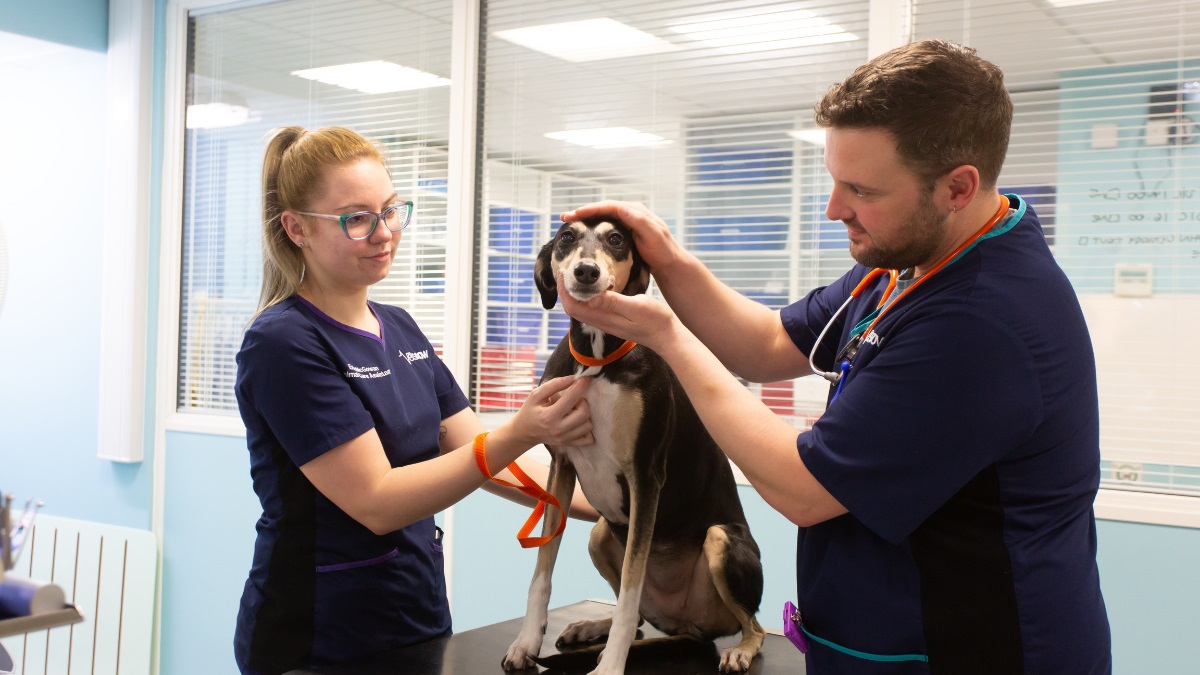
As a pet owner, discovering worms in your dog’s stool can be unsettling. Intestinal parasites such as roundworms, tapeworms, hookworms, and whipworms are more common than you might think. Beyond being unpleasant to see, these parasites can pose serious health risks and are often highly contagious, and not just to other pets, but in some cases, to humans as well.
What’s even more concerning is that worms often go undetected without regular check-ups at the vet. Many types of worm eggs are microscopic, meaning your dog could be carrying parasites even if their poo appears normal. It is important to recognise the signs, know when to contact your vet, and take preventative steps before things escalate.
What do worms in dog poop look like?
Worms in dog poop can vary in appearance depending on the type:
- Roundworms look like spaghetti or a rubber band – long, white, and cylindrical.
- Tapeworms appear as small, flat segments, sometimes resembling grains of rice.
- Lungworms and Hookworms are usually not visible to the naked eye but can be identified under a microscope.
- Whipworms are also difficult to spot in stool but can cause bloody diarrhoea and weight loss.
Is worms in your dog’s poop an emergency?
While it’s not typically a life-threatening emergency, seeing worms in your dog’s poop means your dog needs immediate veterinary attention. Worms can multiply quickly, affect your dog’s internal organs, and in some cases, be passed on to other pets or even humans.
Even if you don’t see worms, your dog may still be infected. Signs like a pot-bellied appearance, coughing, vomiting, diarrhoea, weight loss, or a dull coat could all be indicators of intestinal worms.
What causes worms in dog poop?
Dogs can pick up worms from a variety of sources:
- Ingesting infected soil or faeces
- Fleas (especially tapeworms)
- Eating raw or undercooked meat
- Mother-to-puppy transmission during pregnancy or nursing
- Contaminated water
Worm eggs and larvae can survive in the environment for weeks or even months, making it easy for dogs to become reinfected.

Where do worms in my dog’s poop come from?
The worms you see in your dog’s poop are usually the result of an internal infestation. After being ingested, the larvae migrate through the body, settle in the intestines, and grow into adult worms. These adults lay eggs, some of which are expelled in the faeces – sometimes visible to the naked eye.
How to treat worms in dogs
Treatment will depend on the type of worm, but common steps include:
- Visit the vet – Your vet will conduct a faecal examination under a microscope to determine which worm is present.
- Deworming medication – These are typically oral tablets or liquids that kill the worms. Prescription medication options are more effective where an infestation has occurred compared with over-the-counter dewormers.
- Follow-up treatments – Some worms require multiple rounds of medication to be fully eliminated.
- Hygiene practices – Clean up poop promptly, wash your hands, and keep your pet’s bedding clean.
- Never try to treat worms without guidance from your vet, especially for puppies, pregnant dogs, or senior pets.
How Long does it take to get rid of worms?
Most dewormers start working within a few hours, and you may notice dead worms in your dog’s stool within a day. However, a full recovery can take a few days to weeks, especially if your dog has a severe infestation. Always complete the full course of treatment and return to your vet for a follow-up examination.

How to prevent worms in dogs
Prevention is always better than cure. Here’s how to protect your dog:
- Use regular deworming treatments – Your vet can recommend a schedule based on your dog’s age and lifestyle.
- Control fleas – Tapeworms can come from ingesting fleas.
- Practice good hygiene – Pick up your dog’s poop and discourage them from eating feces or scavenging.
- Avoid raw meat diets – Unless advised by a vet, raw feeding could increase the risk of worm infections.
- Routine vet visits – Regular checkups help catch problems early.
Types of intestinal worms in dogs
Here’s a quick overview of the most common worms found in dog poop:
- Roundworms – The most common type, especially in puppies. Can be passed to humans.
- Tapeworms – Caused by ingesting infected fleas.
- Hookworms – Can cause serious blood loss. Spread via skin contact or ingestion.
- Lungworms – cause by ingesting slugs and snails that contain parasites larvae.
- Whipworms – Less common but can cause severe intestinal irritation and weight loss.
- Heartworms – Although not prevalent in the UK, this is a watch out for dogs who have travelled or have been imported from regions where heartworms are prevalent (Southern and Eastern Europe). These worms are not found in poop, but are worth mentioning. They are transmitted by mosquitoes and live in the heart and lungs.

